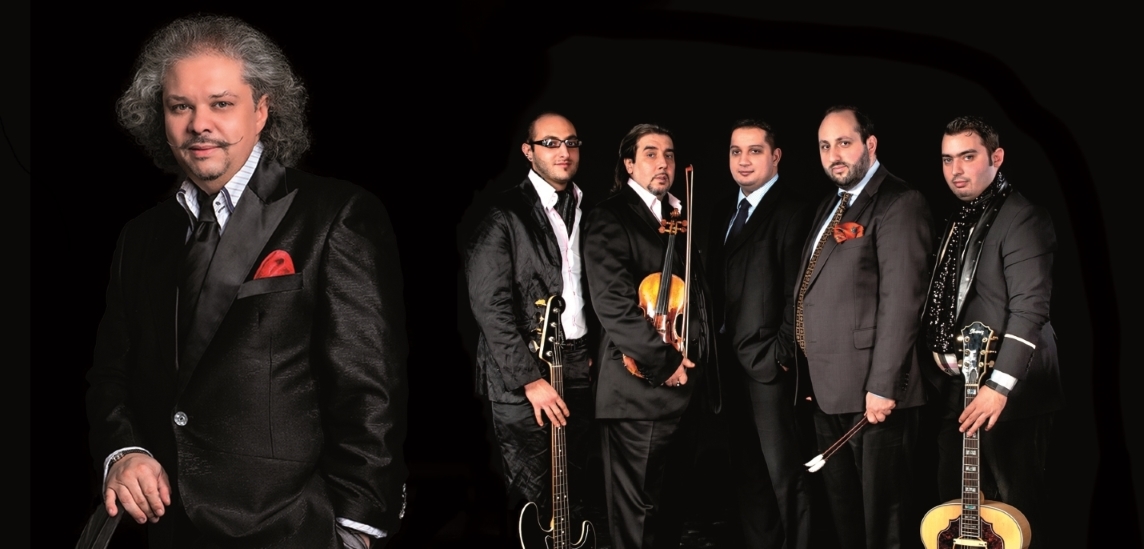His participation at the anniversary celebrations for Yehudi Menuhin at the Konzerthaus Berlin last April was a culminating moment of Roby Lakatos’ activities of the past four months. Among them was a concert with Kristjan Järvi and the MDR Symphony Orchestra at the Leipzig Gewandhaus, where the audience broke out in an enthusiastic standing ovation. The Japan tour in March was a truly sensational success, the concerts in Hyogo and Tokyo each boasting 2,000 attendees, and endless queues of people waiting for autographs afterwards.
After an invitation from India’s most famous violinist, L. Subramanian, Roby Lakatos toured through India with his gypsy ensemble. Here, too, they were consistently accompanied by an enormous crowd of concertgoers who enjoyed with abandon their playing and improvisation, whether in the Western or in the Carnatic style.
A performance in Stockholm with the Swedish Wind Ensemble certainly deserves mention, as well. The work by Franz Liszt known as Hungarian Rhapsody No. 2 was to be heard in a version for cimbalom and wind ensemble, with Jeno Lisztes, the best cimbalom player of his generation – known as “Fasten Seatbelt Cimbalom” – as soloist and Roby Lakatos on the conductor’s stand.
Not many people know that these themes are descended from the well-known works of Roby Lakatos’ seventh-generation great-grandfather, Janos Bihari. This violin virtuoso – who couldn’t read music – won the admiration of Haydn, Beethoven, and Liszt and was the secret star of the Congress of Vienna. Roby Lakatos has taken on the task of excavating further works by Bihari, such as those that Liszt turned into a variety of Hungarian rhapsodies, and articulating them in new arrangements. It must be a thrill to experience such familiar themes as those of Hungarian Rhapsodies No. 2 or 14 on violin and cimbalom rather than on the piano, whether accompanied by a small or a large ensemble.
Still, Roby Lakatos does not aim to reproduce them in the original Verbunkos style of Vienna’s late classical era. This is because Roby Lakatos is a virtuoso who restores the long-lost practice of improvisation to the classical music world. And he is a true master at it. The great Yehudi Menuhin envied Roby Lakatos his gift for improvisation and his “gypsy blood”, as he said at the time of his first meeting with eighteen-year-old Lakatos.


